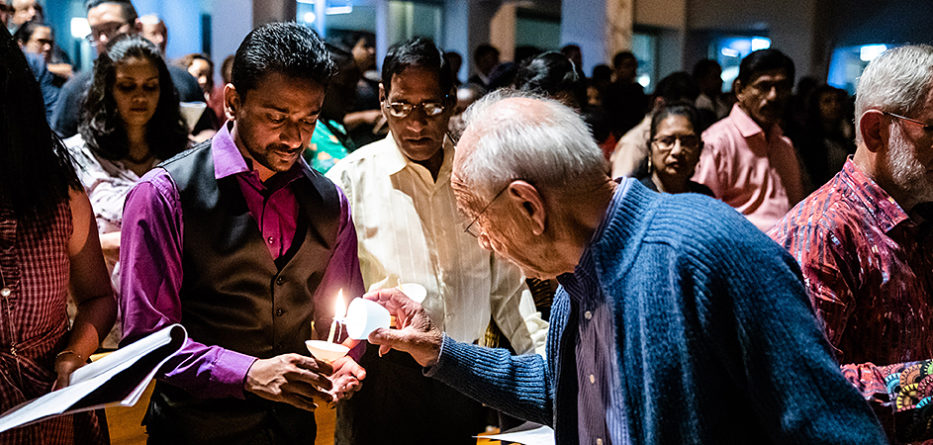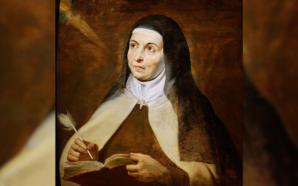As Catholics, we have lived and breathed Tradition as a key component of our identity, but have we ever paused to ask if we may confuse Tradition with what is fixed and decisive? In doctrine, it may be thought of as the passing on of truths, well-conceived and defined. In morals, it may be taken to indicate standardised values, even describing some of them as absolute. In sacrament, it can be heard to point only to what is ritually fixed and unchangeable. In fact, however, tradition is first and foremost the transmission of life in Christ and the Spirit, down through the ages and across cultures. This has its doctrinal, theological, sacramental, devotional, and sacramental expressions. And the action of tradition involves a constant process of interpretation, a process of retrieving the past as we redress the present. Indeed, there is a sense in which the present is always in the very act of passing, since what brings a people into the future is the core concern of tradition.
Synodality relies on Tradition and history to chart new paths forward for the Church in response to our unique circumstances. As enlightened as we are by the Word and grounded in Tradition, the synodal path is rooted in the concrete life of the People of God.
The teaching of Scripture and Tradition show that synodality is an essential dimension of the Church, and through synodality, the Church reveals and configures herself as the pilgrim People of God and as the assembly convoked by the risen Lord.
If no new questions emerge, a community may continue to repeat what is found in the past, doctrinally, morally, ritually, devotionally, and institutionally. The scrutiny of the traditions that serve Tradition is, however, recast when the conditions of an age in the life of the Church and of those to whom the Gospel is addressed bring forth new issues and new questions. The conditions may be such that coherency in Church life vanishes and ecclesial life as it were, becomes a muddle. This is why some redress is needed, some way in which the imagination, nourished from Christian sources, “presses back against the pressures of reality”, to quote Seamus Heaney.
Paul Ricoeur, writing of the role of the canonical scriptures as a text in the life of a Christian community, notes the process of interpretation as one which discovers “something revealing that is not frozen in any ultimate or immutable texts.”[1] These texts are related to life, to other texts, to rites, to institutions, to personages, and in the process their meaning and gift emerge anew.
Fidelity to tradition means allowing for moments of evangelical retrieval within the disruptions of history. It looks back in memory to the Christ event and to the evangelical tradition recorded in the scripture to call certain developments into question. It can also record the memory of persons and occurrences, and indeed, of doctrinal formulations, which have served as inspirational expressions of Christian faith and of the work of the Spirit. There can be no presumption of progress and each age must allow its modes of celebration to be called into question by the very desire to be faithful to tradition. As Pierre Gisel notes, Christian tradition does not provide a dwelling place.[2] In the face of human events, it provides the Church with a pluriform memory which always refers back to specific historical events and diverse moments on which it draws in faith to find on a way of being in the present time that is both a memory of the past and an expectation of the future promised in the Pasch.
What is important is the presence and action of God in human lives, in virtue of the active presence of the Spirit and the memorial of Jesus Christ as conveyed by tradition.
In sum, tradition is the living faith of dead people, not the dead faith of living people. As Richard Lennan expresses it, “we are about passing on a living tradition in living condition…. Tradition is a living reality, not a cement block and the desire to bring the gospel up to date is a desire.” The teaching of Scripture and Tradition show that synodality is an essential dimension of the Church. Through synodality, the Church reveals and configures herself as the pilgrim People of God and as the assembly convoked by the risen Lord.
Synodality relies on Tradition, tradition relies on synodality, and both depend on history to chart ever new paths forward to ensure we are living authentically in the spirit of Jesus Christ as Church today in response to our unique circumstances. As enlightened as we are by the Word and grounded in Tradition, the synodal path is rooted in the concrete life of the People of God.”
Whatever our theological stance or understanding let me conclude with the adage attributed to Saint Augustine, In necesariis, unitas; in opinabilibus, libertas; in omnibus caritas (in essentials, unity; in opinions, freedom; in all things, love).”
Fr John Frauenfelder is the Vice Rector of the Diocese of Parramatta’s Holy Spirit Seminary, Harris Park.
[1] Paul Ricoeur, Figuring the Sacred: Religion, Narrative and Imagination, trans. David Pellauer, ed. Mark J. Wallace (Minneapolis: Fortress Press, 1995), 72.
[2] See Pierre Gisel, Corp et Esprit (Paris: Desclee de Brouwer, 1990), 79-95.








